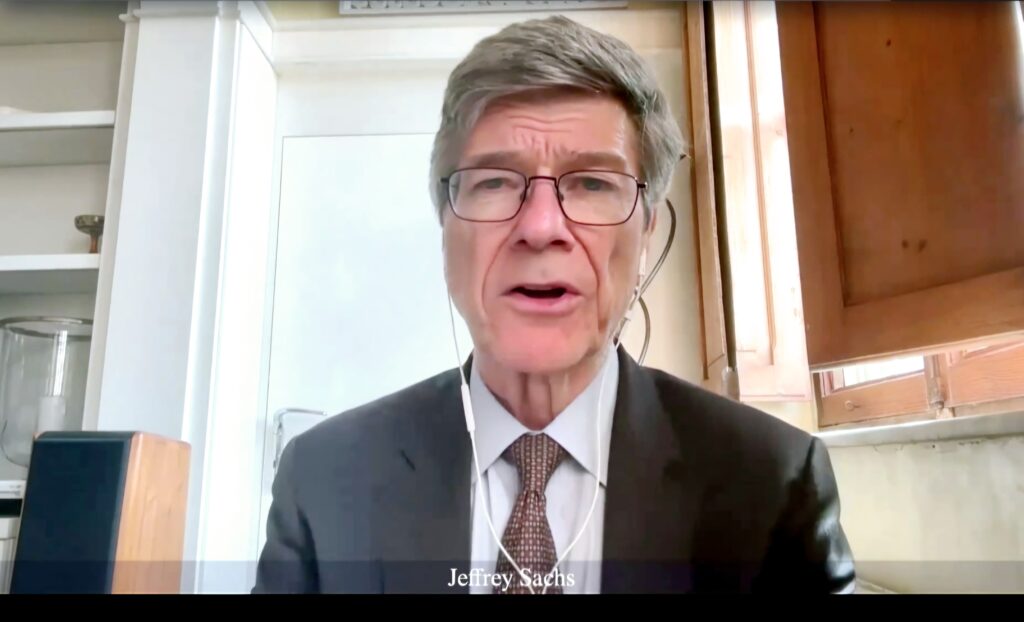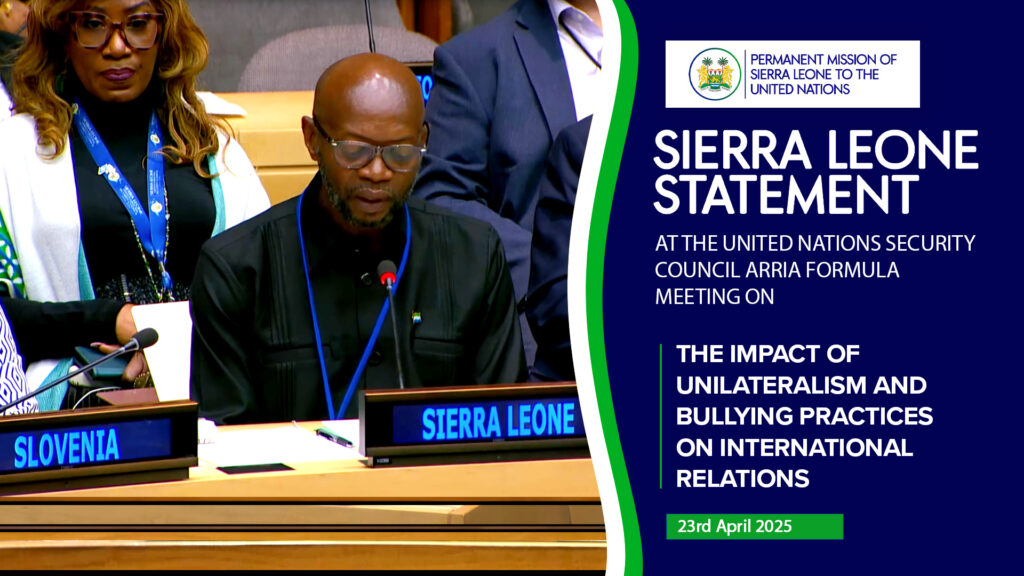STATEMENT BY
H.E. MR. KALILU TOTANGI
AMBASSADOR AND DEPUTY PERMANENT REPRESENTATIVE
Thank you, Mr. Chairman.
I also thank and note the contributions of Professor Jeffrey Sachs, Director of the Centre for Sustainable Development at Columbia University and President of the UN Sustainable Development Solutions Network; and Dr. Wang Huiyao, Founder and President of the Centre for China and Globalization in Beijing.
Our world today faces unprecedented challenges, ranging from conflicts and pandemics to humanitarian crises and climate change, challenges which no nation can address alone. With 700 million people, or 8.5 percent of the global population, living in extreme poverty, and the gap between developed and developing countries continuing to widen, the case for strengthening multilateralism as the core pillar of international relations has never been stronger. The United Nations (UN) remains the most viable platform for dialogue and collective action towards peace, security, and development. Sierra Leone reaffirms its commitment to a multilateral system that is fair, inclusive, and representative, one where the voices of all nations are heard and respected.
Yet, this foundation is increasingly being tested by practices that are not aligned with our shared rules and norms. We must recall the fundamental nature of the UN Charter’s principles, including the sovereign equality of States, the peaceful settlement of disputes, and the promotion of friendly relations among nations. These principles underpin global peace, security, and development, and must remain the bedrock of our international engagements. It is in this context that we offer the following points for consideration.
First, achieving sustainable development, leaving no one behind, requires mutual trust and strict adherence to a rules-based multilateral system. This is critical for fulfilling the purposes of the UN, particularly in advancing economic and social progress. The multilateral system that underpins today’s global system must affirm these ideals not only in principle but also in practice. The Pact for the Future underscores the interconnectedness of peace and development and calls for an equitable global trading system, supported by fair trade and development rules that enable countries, particularly those in the developing world, to maximize their trade potential and harness opportunities for investment, partnerships, and access to global supply chains. National policies on socio-economic development, governance, and security must therefore be guided by this shared commitment to cooperation, prosperity, and inclusive development.
The current high levels of uncertainty and tension in the global economic environment, including looming trade wars among large economies and the imposition of “reciprocal tariffs”, undermine efforts toward sustainable socio-economic development. Sierra Leone shares the concerns expressed by the UN Secretary-General regarding the negative impact of such tariffs on vulnerable developing countries. We also echo the calls by UNCTAD for developing countries, 11 of which are Least Developed Countries, to be exempted from these tariffs, and by the World Food Programme (WFP) on the urgent need to reinstate life-saving emergency food assistance in 14 affected countries.
Second, maintaining a rules-based multilateral system further requires adherence to international law, including international trade law and the agreed responsibilities of States. Global rules and institutions provide predictability and fairness. Conversely, unilateral measures that are not in conformity with international law weaken the system and may violate the norms of peaceful relations among States. We call on all States to honor their commitments and resolve grievances through agreed multilateral mechanisms.
Trade disputes, for instance, should be addressed through consultation and the mechanisms of the World Trade Organization. Developing countries, including Least Developed Countries and countries in situations of fragility with small economies, rely on a stable, rules-based trading system. Sierra Leone, in advocating for such stability, and further reaffirms support for cooperative initiatives like the African Continental Free Trade Area, which seeks to build shared prosperity through partnership rather than division.
Third, a critical step toward strengthening the multilateral system is the need to rebuild trust and reform international institutions to make them more inclusive and reflective of today’s global realities. Trust can only be restored through consistent adherence to international law, the equitable application of rules, and a genuine commitment to collective problem-solving over unilateralism and geopolitical interests.
Further, as recognized in the Pact for the Future, the commitment to transform the global governance architecture must be implemented without delay. These reforms are essential to enable the UN and the wider international community to better address emerging threats and to enhance the representativeness and accountability of global institutions.
In this regard, Sierra Leone reemphasizes the broad consensus that the UN Security Council must be reformed. We echo the call for urgent change to ensure greater representation for Africa, in line with the Common African Position, to redress the historical injustice of Africa’s exclusion in the permanent category of membership. Reforming the Security Council will make it more legitimate, inclusive, and effective, true to the multilateral principles it was established to uphold. Inclusivity at the highest level of global decision-making is not a privilege, but a prerequisite for a just and equitable world order.
In conclusion, Mr. Chairman, Sierra Leone reaffirms that there is no substitute for multilateral cooperation and respect for the rule of law in addressing today’s complex global crises. We must therefore reject practices that are incompatible with the objedtives of the United Nations and corrosive to international trust. Instead, we must advocate for persistent dialogue, mutual respect, and partnership among nations. We are convinced that by embracing inclusive multilateralism, we can overcome division and build a more peaceful, equitable world for all.
I thank you.

Professor Jeffrey Sachs

Dr Wang Huiyao



